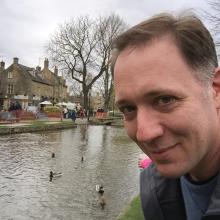Professional summary
Dr Singer is a pollution scientist with research interests focused on understanding its effects on microbial ecology, ecosystem function and human health. Singer's research frequently has a policy-relevance angle, such as characterising the nature and effects of large-scale pharmaceutical use (e.g., antivirals such as Tamiflu, and antibiotics), during an influenza pandemic (1,2,3,4,5), and the drivers of antibiotic (1, 2, 3, 4, 5, 6, 7, 8, 9, 10, 11) and antifungal (1, 2) resistance in the environment and their implications to ecosystems and human health (1, 2, 3, 4). His research includes national (1, 2) and international studies (1) on the environmental drivers of AMR, their relevance to human health and considerations for policy makers (1). Dr Singer is active in the field of wastewater epidemiology (1, 2, 3, 4, 5, 6, 7, 8, 9), which aims to understand human behaviour and health through the analysis of sewage, e.g., pathogen incidence and prevalence, drug compliance. He also actively participates in the debate over the funding models needed for reinvigorating the novel antibiotic pipeline (1, 2, 3).
Dr Singer is on the editorial board of PLOS One and a member of the PATH-SAFE Science Advisory Group, the Animal and Environment AMR Delivery Group for Wales and the Scientific Network on Antifungal Resistance. He is an Honorary Research Fellow of the Liverpool School of Tropical Medicine, Department of Parasitology. Dr Singer received a PhD in Soil and Water Science, from the University of California (2000), Riverside and a BA in Anthropology from the University of California, Berkeley. (1992).
